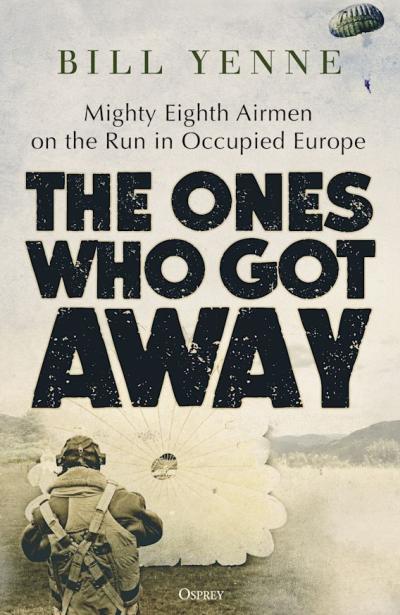| Title: | The Ones Who Got Away - Mighty Eight Airmen on the Run in Occupied Europe |
| Writer: | Yenne, Bill |
| Published: | Osprey |
| Published in: | 2024 |
| Pages: | 320 |
| Language: | English |
| ISBN: | 9781472858 |
| Description: | Books about World War II are always in demand, and at times, this demand is even greater. In the case of The Ones Who Got Away, this greater demand could well be true, as the book was published the same month Apple TV+ began airing Masters of the Air. This highly anticipated series follow-up to Band of Brothers and The Pacific revolves around the role of the U.S. Eighth Air Force in World War II. The book centers around the experiences of pilots and crew members of that same Eighth Air Force in occupied Europe. Author Bill Yenne and publisher Osprey have surely chosen an excellent timing. The topic in itself is also very interesting. The book tells the stories of the airmen who were forced to leave their bombers or fighters in the heat of combat, only to end up in parts of Western Europe occupied by the Germans. It was then up to the soldiers, often (badly) wounded, to stay out of the hands of the Nazis in an unfamiliar area where they hardly spoke the language, with a few exceptions. Fortunately, resistance fighters and well-meaning civilians lent them ample help. So, more than enough fuel for a book full of exciting stories. And yet, this Is only partially true. The fact that the author has drawn on so-called 'escape & evasion' reports from the people involved, contributes to that in several ways (incidentally, Yenne is right to point out that evasion & escape would have been a better name: evade first and then escape in the end). As the reader, you learn through this that the people involved have already successfully stayed out of the hands of the Germans, or at least eventually escaped. The author is then responsible for keeping the tension going anyway. Often, Yenne manages to do that, but not always, especially when the attempts are forced. Exclamation points are too often used to underline how special something is. And having a sentence like "The worst was over, he thought" followed by a new paragraph consisting only of the phrase "He was wrong": it is not effective, and rather counterproductive. Another drawback of writing a book based on the E&E reports mentioned above is that no actual interviews were conducted with the people featured in the stories. Obviously, the author has no control over this: the individuals involved are simply no longer alive, a fact that by now applies to almost all people who fought in World War II. Obviously, the fact that new books in which WW2 testimonies based on personal conversations with the author will slowly disappear is no reason to abandon all those stories that have yet to be told. But at the same time, one does sense a rather larger distance, the narration is just a bit more impersonal. In The Ones Who Got Away, too, this occasionally filters through. With that said, this is by no means a bad book. The book does take off a bit slowly, as Yenne chooses to first explain a few things that, for the most part, could just as well have been woven into the stories. Also, the first chapter where we actually experience compassion for the airmen trying to get back to safe territory once on the ground, suffers because of the rather sizeable group in that particular story. This is followed by a series of storylines, each split into the needed chapters, in which pilots and crew members mainly try to get to safety individually or in pairs. Those chapters are much more personal and orderly, allowing the reader to experience the adventures much more. Indeed, it is thanks to that large, well-written middle section that this book is given a primarily positive rating. |
| Rating: |    Good Good |
Information
- Translated by:
- Sophie Louwers
- Article by:
- Vincent Krabbendam
- Published on:
- 09-03-2024
- Feedback?
- Send it!
Images


